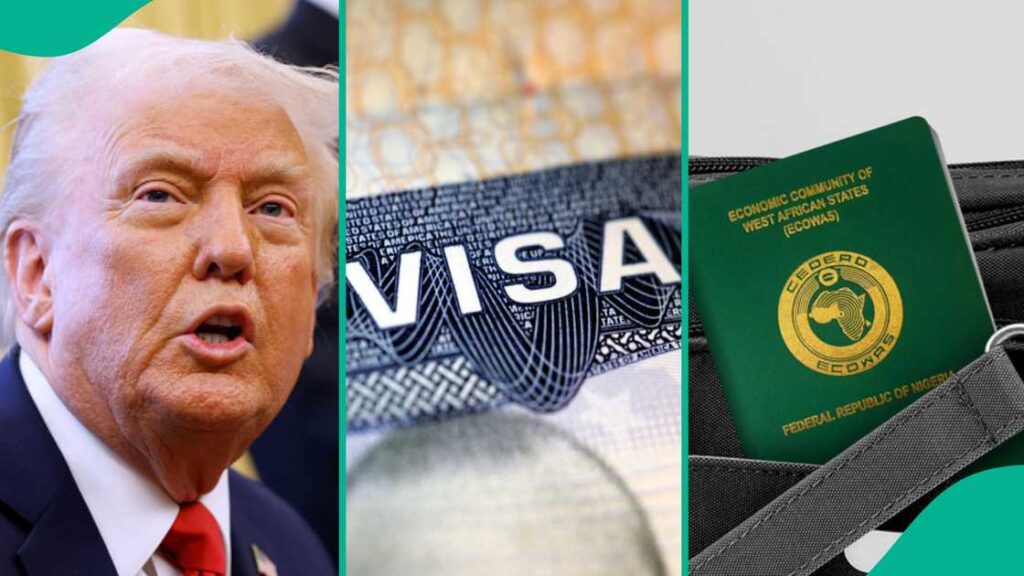US Visa Ban on ECOWAS Nations Sparks Outrage, Warnings
ECOWAS Leaders Warn US Policy Threatens Trade, Security, and Regional Growth

The United States government’s plan to impose new visa restrictions on all ECOWAS member states has sparked strong criticism and concern across West Africa. At the 54th Ordinary Session of the ECOWAS Mediation and Security Council in Abuja, Nigeria’s Foreign Affairs Minister and ECOWAS Mediation Chair, Ambassador Yusuf Tuggar, warned that the sweeping policy could damage trade, diplomacy, and the region’s future prosperity.

ECOWAS Leaders Sound the Alarm
Ambassador Tuggar, addressing ministers and diplomats, described the proposed US visa restrictions as a “significant barrier” to economic growth and international cooperation. He said the move would stifle efforts to deepen US-West Africa relations at a time when the region is eager for new partnerships and investment.
“It would be most unfortunate if it comes to pass, because we are a region of opportunities ready to do deals. We would like to do deals with the US, but visa restrictions are non-tariff barriers to deals,” Tuggar stated, urging Washington to reconsider.
He stressed that ECOWAS countries are rich in critical minerals and rare earths, and are open to international trade. Tuggar noted that West Africa is not lacking in potential partners and warned that the US risks missing out on strategic opportunities.
The Scope of the Proposed Ban
According to leaked US State Department memos, the Trump administration is considering a major expansion of travel restrictions. Up to 36 countries, including all ECOWAS members and key US partners like Nigeria, Ghana, and Egypt, could face full or partial entry bans if they do not meet new US security and identity verification standards within 60 days.
The policy is reportedly driven by concerns over unreliable identity documents, lack of government cooperation in deportations, high visa overstay rates, and alleged security risks. The US has already enforced travel bans on 12 countries as of June 9, 2025, and partial restrictions on several others. If the new measures are implemented, nearly 40 African nations could be affected.
Economic and Diplomatic Fallout
ECOWAS leaders say the restrictions could have far-reaching consequences. The region is home to vital resources, growing markets, and a young, dynamic workforce. Business leaders and government officials warn that visa barriers will hurt trade, disrupt investment, and make it harder for entrepreneurs, technocrats, and officials to travel for deals and negotiations.
Tuggar emphasized that West Africa is a strategic alternative to more distant and politically divergent energy producers. He called on the US to build partnerships based on mutual benefit, not barriers.

“We will do deals for our prosperity; the only question is with whom? Who takes up the opportunities in our region by allowing government officials and technocrats, business executives and entrepreneurs to travel freely back and forth to close the deals?” he asked.
Political and Civil Society Reactions
The proposed visa ban has drawn criticism from civil society groups, business leaders, and international observers. Many see the policy as discriminatory and counterproductive, arguing that it undermines US influence and goodwill in Africa. Critics say the restrictions could separate families, disrupt education and business, and reinforce negative stereotypes.
Some African governments are already considering reciprocal measures. Chad, for example, has suspended visas for US citizens in response to Washington’s earlier travel bans. Analysts warn that the move could escalate diplomatic tensions and harm long-standing partnerships.
What Happens Next?
The US has given the affected countries a short deadline to comply with new security and identity benchmarks. Nations must submit action plans and show progress within 60 days or risk being added to the expanded travel ban list. The policy has already sparked legal and political debates in the US, with civil rights groups and lawmakers calling it xenophobic and urging a review.
Ambassador Tuggar and other ECOWAS leaders are urging Washington to reconsider, warning that the region’s prosperity and stability depend on open, fair, and respectful international engagement.
“We in this part of the world are students of the Art of the Deal and have been part of the international trading system even before the modern state system,” Tuggar said, highlighting West Africa’s readiness for global business.
Conclusion
The US plan to expand visa restrictions on ECOWAS countries has set off alarm bells across West Africa and beyond. Leaders warn that the policy could block trade, isolate the region, and damage vital diplomatic ties. As the deadline for compliance approaches, all eyes are on Washington and West African capitals to see if dialogue and partnership can win out over barriers and bans.
Stay woke. Stay tuned. Stay with AKEWE NEWS.




